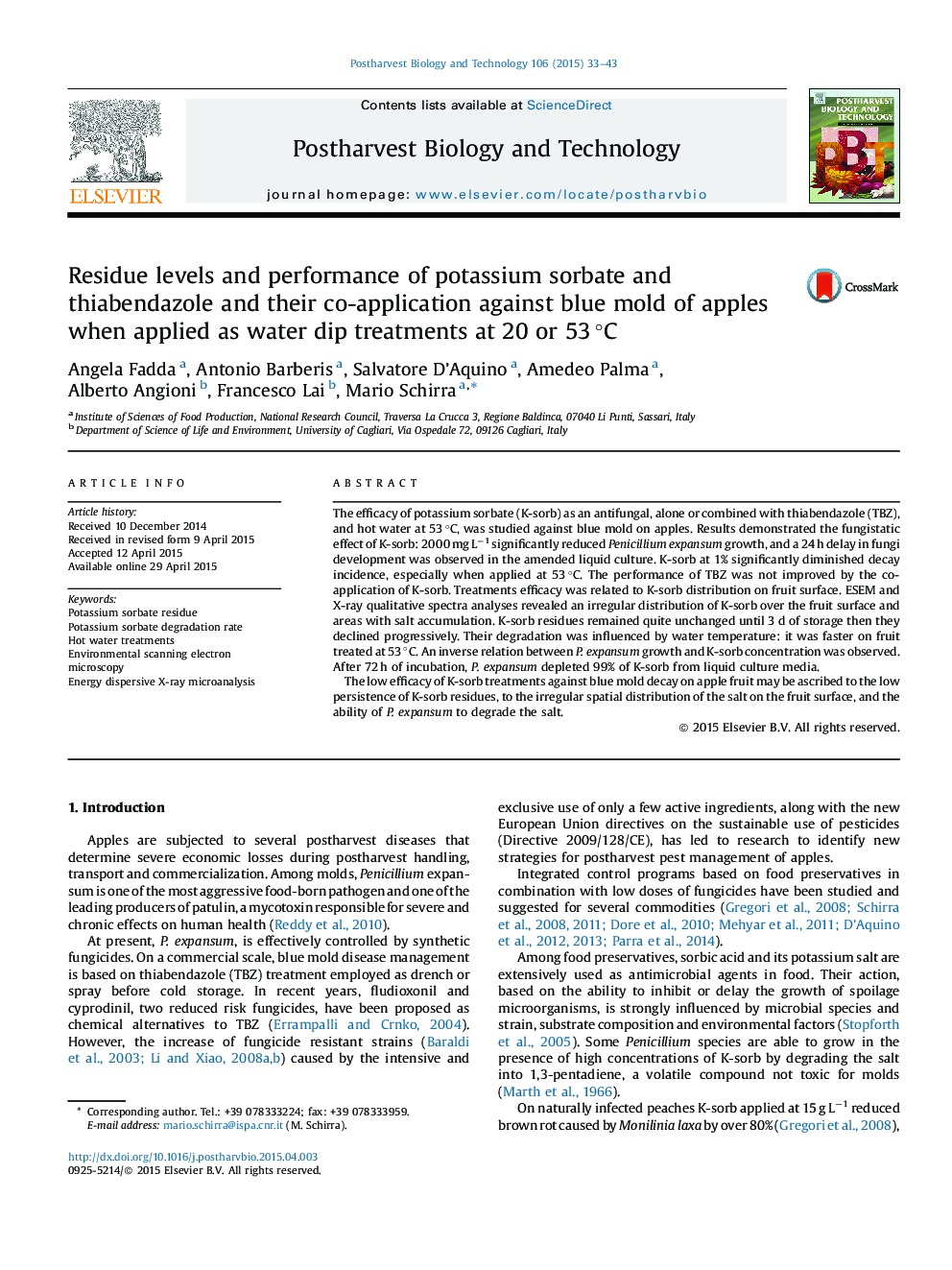| Article ID | Journal | Published Year | Pages | File Type |
|---|---|---|---|---|
| 4518028 | Postharvest Biology and Technology | 2015 | 11 Pages |
•Potassium sorbate activity at 53 °C against blue mold was higher than at 20 °C.•Potassium sorbate activity against decay was related to its degradation rate.•Potassium sorbate efficacy was related to the irregular deposition on fruit.•The performance of thiabendazole was not improved by the co-application of K-sorb.
The efficacy of potassium sorbate (K-sorb) as an antifungal, alone or combined with thiabendazole (TBZ), and hot water at 53 °C, was studied against blue mold on apples. Results demonstrated the fungistatic effect of K-sorb: 2000 mg L−1 significantly reduced Penicillium expansum growth, and a 24 h delay in fungi development was observed in the amended liquid culture. K-sorb at 1% significantly diminished decay incidence, especially when applied at 53 °C. The performance of TBZ was not improved by the co-application of K-sorb. Treatments efficacy was related to K-sorb distribution on fruit surface. ESEM and X-ray qualitative spectra analyses revealed an irregular distribution of K-sorb over the fruit surface and areas with salt accumulation. K-sorb residues remained quite unchanged until 3 d of storage then they declined progressively. Their degradation was influenced by water temperature: it was faster on fruit treated at 53 °C. An inverse relation between P. expansum growth and K-sorb concentration was observed. After 72 h of incubation, P. expansum depleted 99% of K-sorb from liquid culture media.The low efficacy of K-sorb treatments against blue mold decay on apple fruit may be ascribed to the low persistence of K-sorb residues, to the irregular spatial distribution of the salt on the fruit surface, and the ability of P. expansum to degrade the salt.
Graphical abstractFigure optionsDownload full-size imageDownload as PowerPoint slide
